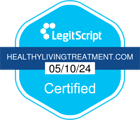Seeking treatment for drug or alcohol addiction is a major step towards improving your health and regaining control of your life. However, taking time off work to enter a rehab program can lead to financial challenges. Fortunately, short term disability insurance can provide income replacement while you focus on your recovery. This guide will explain how short term disability benefits can support your rehab stay.
What is Short Term Disability Insurance?
Short term disability insurance pays a portion of your salary, usually 50-70%, if you cannot work for a short period due to illness, injury or medical treatment. Policies are often offered as benefits through employers or can be purchased individually. Payouts typically begin after a 7-14 day waiting period and continue for up to 26 weeks depending on the plan.
Qualifying for Benefits for Rehab
Most short term disability policies cover stays in inpatient rehab facilities. Drug and alcohol addiction is considered a medical condition under the Americans with Disabilities Act. For approval, the rehab program should provide evidence of medical supervision and structured treatment. Your doctor will need to confirm your disability and recommend an inpatient stay
Submitting Your Disability Claim
To start the claims process, notify your employer and obtain their signatures on any required forms. Additionally, give your rehab facility information to your disability provider so they can verify treatment details. Submit all forms, doctor notes and related medical records. The insurer will confirm eligibility based on your policy terms. Approval may take 2-4 weeks.
Using Paid Time Off First
Some employers require using accrued sick leave or PTO before short term disability benefits begin. Review your company policies. Using paid leave first allows you to receive full pay instead of the reduced percentage from disability. Any vacation time taken just before or after rehab may require medical justification.
Continuing Treatment and Follow Up Care
To maintain benefits, you must complete the full rehab program. Short term disability only applies while under supervised care. Any relapse that requires return to inpatient treatment will need re-approval. For extended recovery support, transition to intensive outpatient services and attend therapy or support groups.
Applying for Social Security Disability
If your addiction prevents you from working longer than 6 months, you may qualify for Social Security disability benefits. Consult with your treatment providers for support applying. Approval will depend on proving your condition results in significant work limitations. With proper medical documentation, Social Security can provide income beyond when short term disability ends.
In conclusion, taking time away from work for rehab is a major life step. But you don’t have to put your finances at risk. Understanding how to leverage short term disability insurance can give you the income you need to start your journey toward lifelong sobriety. Discuss your options with your employer, doctors and rehab specialists for help navigating the process.
Resources
EDD State of California – How to File a Disability Insurance Claim in SDI Online
American Addiction Centers – Information on rehab programs and admissions process
Mayo Clinic – Overview of short-term disability insurance
Social Security Administration – Details on eligibility for Social Security disability benefits
U.S. Department of Labor – Explanation of the Family and Medical Leave Act
Mental Health America – Tips for talking to employers about rehab leave:



 <!—->
<!—->
